|
|
|
|
|
HYBRID ANALYSIS
|
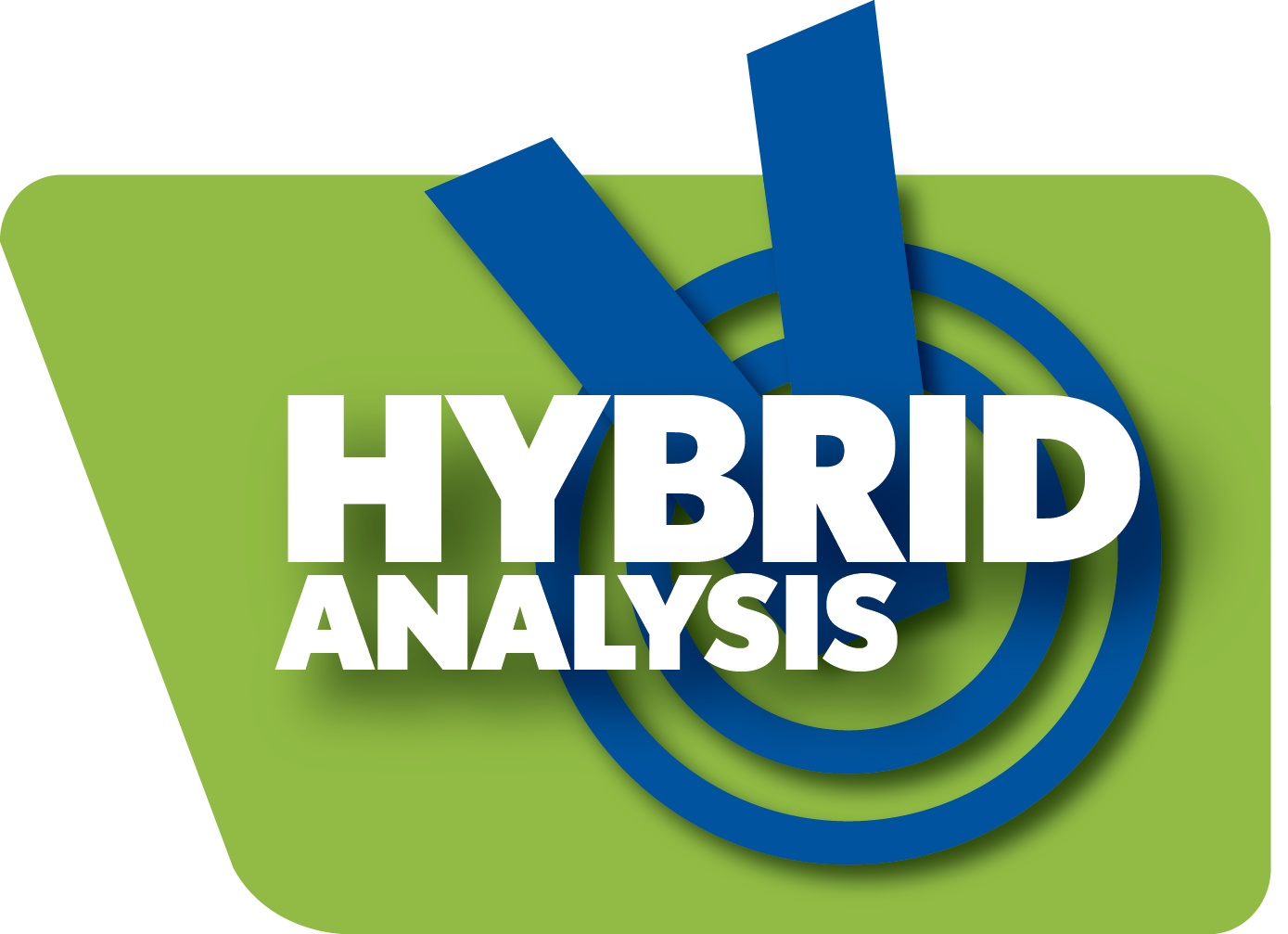 EXECUTIVE SUMMARY EXECUTIVE SUMMARY
The Vincentric 2013 Hybrid Analysis showed that of the 33 hybrids measured, 13 had a total cost of ownership that was lower than their all-gasoline powered counterparts.
The average price premium for a hybrid was $4,647, with an average fuel cost savings of $3,371. When all costs to own and operate a hybrid were taken into account, the average cost of ownership for hybrids was $1,388 more than the all-gasoline powered counterparts. The range between the best and worst savings was significant, with the 2013 Lexus CT 200h saving buyers $6,379 while the 2013 GMC Yukon Hybrid cost buyers over $9,171 more to own. The full study is published below.
2013 HYBRID ANALYSIS
There are many different approaches for comparing hybrids to their all gas counterparts. At Vincentric, we have prepared different reports to help users understand the financial dynamics of hybrid vehicles. By doing so, we enable users to better understand the expected costs (or savings) of driving a hybrid, resulting in the ability to make a more informed decision when considering the purchase of a hybrid vehicle.
Fuel prices used in these reports are based on a weighted average over the previous five months, so you may notice that they don't necessarily reflect current prices during times of rapid fuel price changes. This is done to help ensure that the analysis reflects current market trends and not market extremes.
The reports assume 15,000 miles are driven annually, and the vehicle is owned five years. It is also worthwhile to understand that the numbers shown are U.S. averages, although the same analysis can be done for any state or the District of Columbia.
Please note the reports below use data from our July, 2013 database update. Vincentric compares hybrid vehicles to their all-gas counterpart based on a similar trim level. Cost differentials may differ if other trims are analyzed.
COST OF OWNERSHIP AND FUEL COST COMPARISON
There has been much debate over whether the premium price that hybrid vehicles command can be financially justified. In this analysis, there were 13 hybrids that can be financially justified purely based on the total cost of ownership numbers. The following hybrid vehicles had cost of ownership numbers that were less than the all-gasoline powered counterparts:
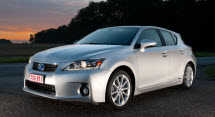 2013 Acura ILX Hybrid (-$471) 2013 Acura ILX Hybrid (-$471)- 2013 Audi Q5 Hybrid (-$3,805)
- 2013 Ford Fusion Hybrid (-$803)
- 2013 Honda Insight (-$1,079)
- 2013 Hyundai Sonata Hybrid (-$1,674)
- 2013 Lexus CT 200h (-$6,379)
- 2013 Lexus ES 300h (-$195)
- 2013 Lincoln MKZ Hybrid (-$4,778)
- 2013 Mercedes-Benz S Class Hybrid (-$3,283)
- 2013 Toyota Avalon Hybrid (-$2,222)
- 2013 Toyota Prius C (-$474)
- 2013 Toyota Prius V (-$1,528)
- 2013 Volkswagen Jetta Hybrid (-1,487)
For those whose purchase of a hybrid is based upon minimizing the environmental impact and not strictly financially driven, the report identifies additional viable vehicles. The following hybrid vehicles were shown to have additional costs of less than $2,000 over 5 years, or less than $34 per month more than the gas-powered counterpart.
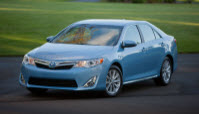 2013 Ford C-Max Hybrid ($956) 2013 Ford C-Max Hybrid ($956)- 2013 Honda Civic Hybrid ($1320)
- 2013 Porsche Cayenne Hybrid ($545)
- 2013 Porsche Panamera Hybrid ($313)
- 2013 Toyota Camry Hybrid ($542)
- 2013 Toyota Highlander Hybrid ($253)
In addition to carbon emission improvements, hybrids are known for their improved fuel economy. The models that provide the greatest benefit over their gas-only counterparts are:
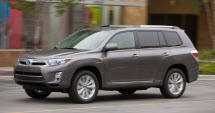
- 2013 Cadillac Escalade Hybrid (-$5,054)
- 2013 Ford Fusion Hybrid (-$4,977)
- 2013 Lexus CT 200h (-$6,154)
- 2013 Toyota Highlander Hybrid (-$5,017)
- 2013 Toyota Prius V (-$5,270)
Of course for those who are looking to minimize fuel purchases, it is important to know the hybrid vehicles with the lowest overall fuel costs. They are:
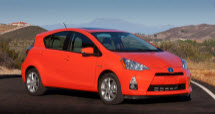 2013 Toyota Prius ($5,917) 2013 Toyota Prius ($5,917)- 2013 Toyota Prius C ($5,917)
- 2013 Ford C-Max Hybrid ($6,245)
- 2013 Ford Fusion Hybrid ($6,245)
- 2013 Lincoln MKZ Hybrid ($6,522)
The chart below shows further detail regarding the items related to cost of ownership and fuel consumption for each hybrid. In addition, by clicking on the vehicles names in the chart, you will see a detailed comparison of the two vehicles.
The results of this analysis show that 13 of the 33 hybrid vehicles measured have a lower overall cost of ownership than their gasoline alternatives. The chart below shows three key items related to cost of ownership for each hybrid, which include:
- The Price Premium - This shows how much more you pay for the hybrid.
- Cost of Ownership Differential - This shows how much more (or less, if a negative number) it will cost to own and operate the hybrid compared to a similar all-gasoline powered vehicle.
- Fuel Cost Differential - This shows the fuel savings obtained by the hybrid. Buyers often only look at fuel savings due to its reduction in the use of petroleum, although from a strictly financial perspective the Cost of Ownership differential is the relevant number.
| |
|
Vehicles Being Compared
(Click on the vehicles to see a detailed cost of ownership comparison)
|
Price Premium
|
Cost of Ownership Differential
|
Fuel Cost Differential
|
| |
 |
2013 Acura ILX Hybrid vs 2013 Acura ILX
|
$2,275
|
$-471
|
$-3,152
|
| |
 |
2013 Audi Q5 Hybrid vs. 2013 Audi Q5
|
-594 |
-3,805 |
-3,190 |
| |
|
2013 BMW 3-Series Hybrid vs 2013 BMW 3-Series
|
3,805 |
2,748 |
-614 |
| |
|
2013 BMW 5-Series Hybrid vs 2013 BMW 5-Series
|
7,592 |
5,422 |
-1,150 |
| |
|
2013 BMW 7-Series Hybrid vs 2013 BMW 7-Series
|
7,078 |
3,766 |
-222 |
 |
|
2013 Cadillac Escalade Hybrid vs 2013 Cadillac Escalade
|
5,536 |
3,125 |
-5,054 |
| |
|
2013 Chevrolet Silverado 1500 Hybrid vs 2013 Chevrolet Silverado 1500
|
9,795 |
6,273 |
-4,668 |
| |
|
2013 Chevrolet Tahoe Hybrid vs 2013 Chevrolet Tahoe
|
6,902 |
6,697 |
-3,237 |
| |
|
2013 Ford C-Max Hybrid vs 2013 Ford Focus
|
7,398 |
956 |
-3,209 |
 |
 |
2013 Ford Fusion Hybrid vs 2013 Ford Fusion
|
4,522 |
-803 |
-4,977 |
| |
|
2013 GMC Sierra 1500 Hybrid vs 2013 GMC Sierra 1500 |
9,277 |
5,737 |
-4,668 |
| |
|
2013 GMC Yukon Hybrid vs 2013 GMC Yukon
|
9,622 |
9,171 |
-3,237 |
| |
|
2013 Honda Civic Hybrid vs 2013 Honda Civic
|
3,298 |
1,320 |
-2,481 |
| |
|
2013 Honda CR-Z vs 2013 Honda Civic
|
2,180 |
2,596 |
-1,281 |
| |
 |
2013 Honda Insight vs 2013 Honda Civic |
-54 |
-1,079 |
-2,213 |
| |
 |
2013 Hyundai Sonata Hybrid vs 2013 Hyundai Sonata
|
1,937 |
-1,674 |
-2,714 |
 |
 |
2013 Lexus CT 200h vs 2013 Lexus IS 250 |
-838 |
-6,379 |
-6,154 |
| |
 |
2013 Lexus ES 300h vs 2013 Lexus ES 350
|
3,011 |
-195 |
-4,526 |
| |
|
2013 Lexus GS 450h vs 2013 Lexus GS 350 |
11,690 |
8,157 |
-4,111 |
| |
|
2013 Lexus RX 450h vs 2013 Lexus RX 350
|
6,818 |
3,177 |
-3,584 |
| |
 |
2013 Lincoln MKZ Hybrid vs 2013 Lincoln MKZ
|
450 |
-4,778 |
-4,818 |
| |
|
2013 Mercedes-Benz E Class Hybrid vs 2013 Mercedes-Benz E Class
|
4,511 |
3,810 |
-1,625 |
| |
 |
2013 Mercedes-Benz S Class Hybrid vs 2013 Mercedes-Benz S Class
|
-2,489 |
-3,283 |
-2,475 |
| |
|
2013 Porsche Cayenne Hybrid vs 2013 Porsche Cayenne |
3,676 |
545 |
-2,752 |
| |
|
2013 Porsche Panamera Hybrid vs 2013 Porsche Panamera |
4,603 |
313 |
-4,210 |
| |
 |
2013 Toyota Avalon Hybrid vs 2013 Toyota Avalon |
2,806 |
-2,222 |
-4,526 |
| |
|
2013 Toyota Camry Hybrid vs 2013 Toyota Camry |
4,469 |
542 |
-3,090 |
 |
|
2013 Toyota Highlander Hybrid vs 2013 Toyota Highlander |
5,360 |
253 |
-5,017 |
| |
|
2013 Toyota Prius vs 2013 Toyota Corolla |
7,024 |
2,405 |
-4,176 |
| |
 |
2013 Toyota Prius C vs 2013 Toyota Yaris |
3,004 |
-474 |
-3,237 |
 |
 |
2013 Toyota Prius V vs 2013 Toyota Matrix |
5,042 |
-1,528 |
-5,270 |
| |
 |
2013 Volkswagen Jetta Hybrid vs 2013 Volkswagen Jetta |
1,832 |
-1,487 |
-3,781 |
| |
|
2013 Volkswagen Touareg Hybrid vs 2013 Volkswagen Touareg |
11,817 |
6,955 |
-1,818 |
 Represents hybrid vehicles with a lower total cost of ownership compared to their all-gas counterpart. Represents hybrid vehicles with a lower total cost of ownership compared to their all-gas counterpart.
 Represents the five hybrid vehicles with the lowest fuel costs compared to their all-gas counterpart. Represents the five hybrid vehicles with the lowest fuel costs compared to their all-gas counterpart.
WHY DO OWNERSHIP COSTS DIFFER BETWEEN HYBRIDS AND THEIR GAS COUNTERPART?
In most cases studied, the hybrid vehicle had a higher market price than its gas alternative, which causes several cost factors to increase including depreciation, finance, opportunity costs and fees and taxes. However, hybrids offer dramatically lower fuel expenses than their gas counterpart and as fuel prices fluctuate their relative value also increases or decreases. Over the long term, we expect hybrids to provide greater value to consumers as fuel prices increase. Ultimately, it’s important for consumers to look at their needs and the specific models available to them because depending on the current deals, driving patterns and intended length of ownership a hybrid can still be a great value.
Click here to view the press release announcing the 2013 Hybrid Analysis.
 See the 2013 Vincentric Best Value in America award winning hybrid vehicles. See the 2013 Vincentric Best Value in America award winning hybrid vehicles.
To be notified when additional special studies are prepared by Vincentric, please join our news list or you can follow us on Twitter.
|

If you are interested in learning more about other Industry Reports from Vincentric, click here.
|
|
|
| |
|